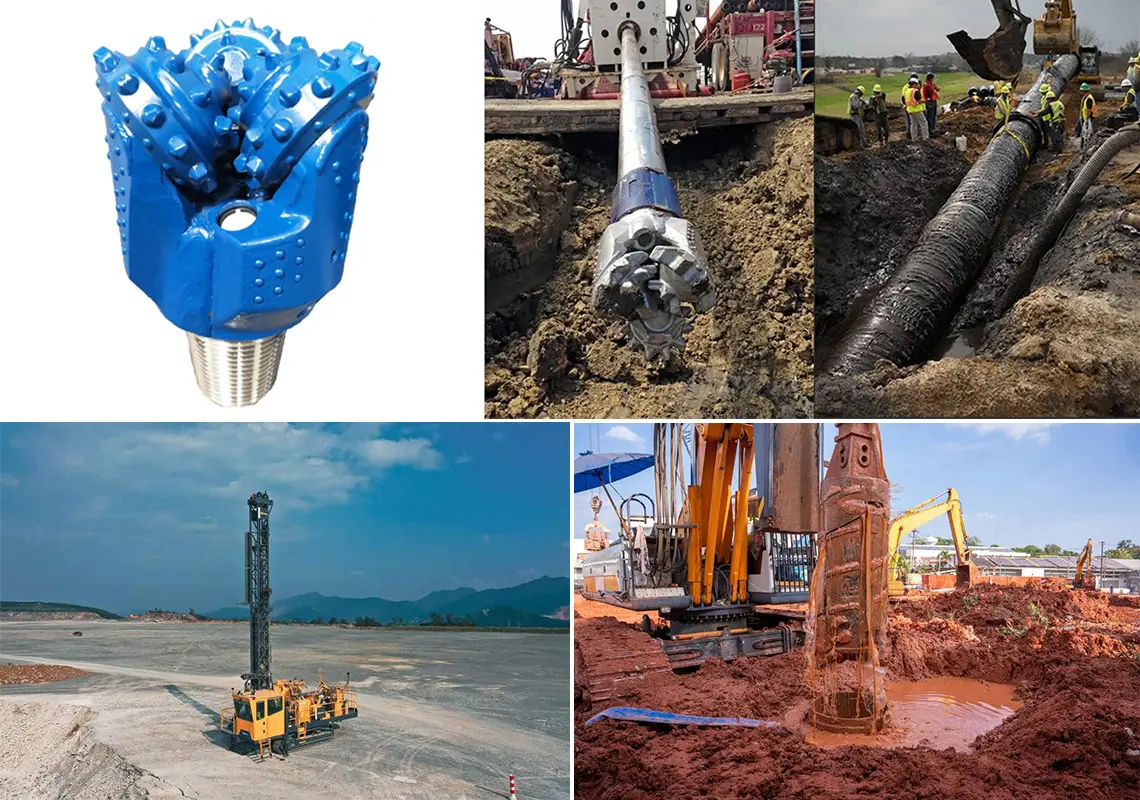Roller Cone Bits are robust and versatile drilling tools that utilize three rotating cones equipped with hardened teeth or inserts. As the drill string rotates, these cones roll across the bottom of the hole, crushing and fracturing the rock through a combination of compression and shearing action.
They are a proven and reliable technology for a wide range of formation types, from soft and medium to extremely hard and abrasive formations. Their design allows for effective drilling performance where other bit types may struggle.
Available Sizes:
| Bit Size (inches) |
Bit Size (mm) |
Number of Cones | Cone Offset Angle | Gage Length
(mm) |
Connection Type |
| 4 ³/₄ | 120.65 | 3 | 12° – 15° | 80 – 100 | API REG / API FH |
| 6 ¹/₄ | 158.75 | 3 | 14° – 17° | 110 – 130 | API REG / API FH |
| 8 ¹/₂ | 215.9 | 3 | 16° – 19° | 150 – 180 | API REG / API HC |
| 12 ¹/₄ | 311.15 | 3 | 18° – 21° | 220 – 250 | API HC / API 5 ¹/₂ FH |
| 17 ¹/₂ | 444.5 | 3 | 20° – 23° | 300 – 350 | API 6 ⁵/₈ REG / API 6 ⁵/₈ FH |
| 26 | 660.4 | 3/4 | 22° – 25° | 450 – 500 | Custom heavy-duty thread |
Note: The above specifications are for users to choose. At the same time, different specifications of products can be produced and processed according to the requirements
Advantages:
- Proven Formation Versatility: Performs effectively in a very wide range of rock types, from soft clays to the hardest, most abrasive formations.
- High Impact Resistance: The robust rolling cutting structure is highly resistant to the shock and vibration encountered in fractured or heterogeneous formations.
- Cost-Effective for Certain Applications: Often provides a lower initial cost compared to PDC bits and can be the most economical choice for specific hard rock intervals.
- Proven Reliability: Simple, time-tested mechanical design offers predictable performance and reliability in challenging conditions.
Applications:
1. Oil & Gas Exploration: A traditional workhorse for drilling long sections of various formations in both vertical and directional wells.
2. Mining & Blast Hole Drilling: Essential for drilling large-diameter holes in hard rock formations for mineral exploration and placing explosives.
3. Water Well Drilling: Widely used for drilling water wells through diverse and unpredictable subsurface layers.
4. Geotechnical & Construction Drilling: Employed for foundation drilling, seismic shot holes, and other civil engineering projects that require penetration into hard rock.



